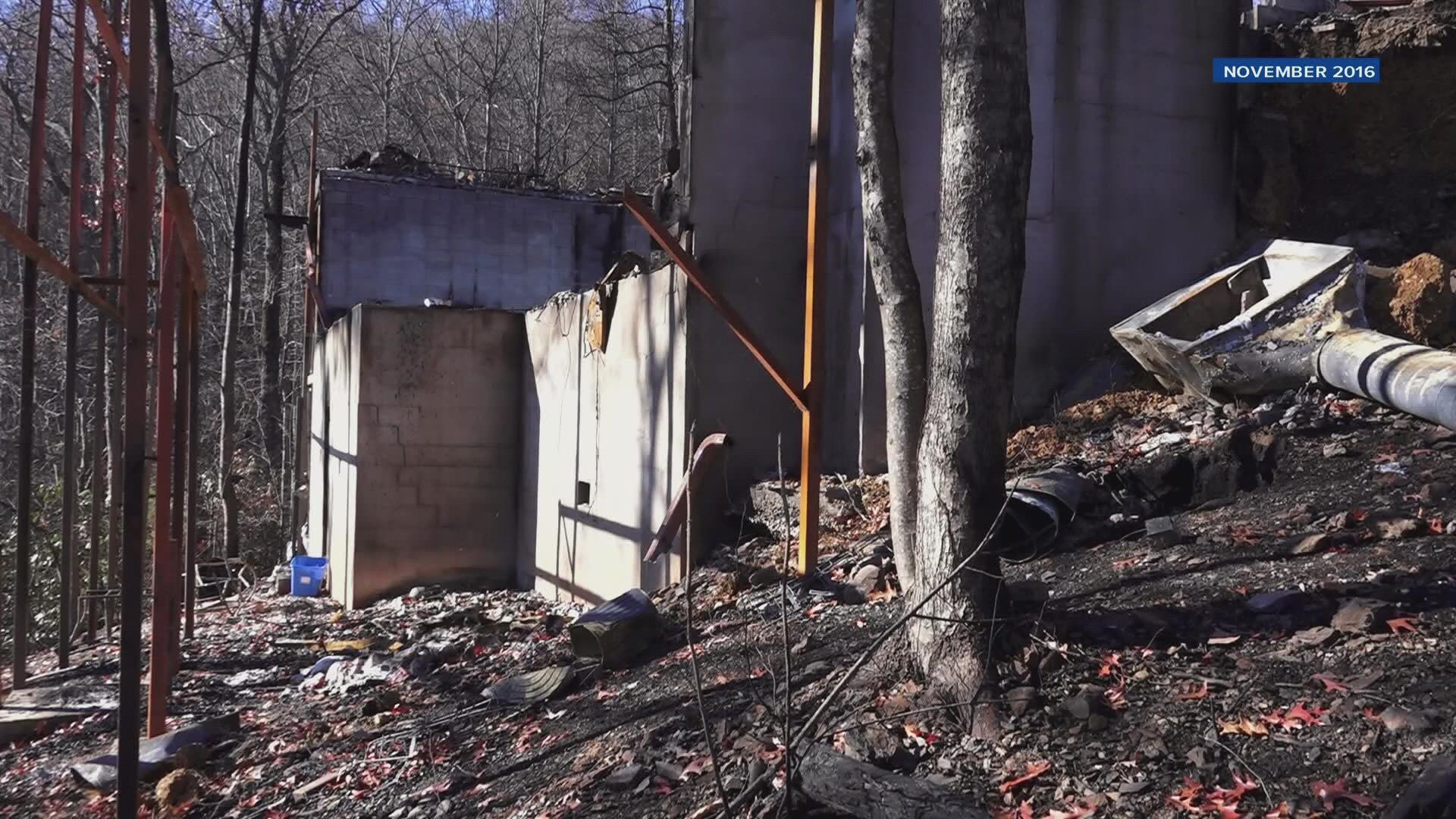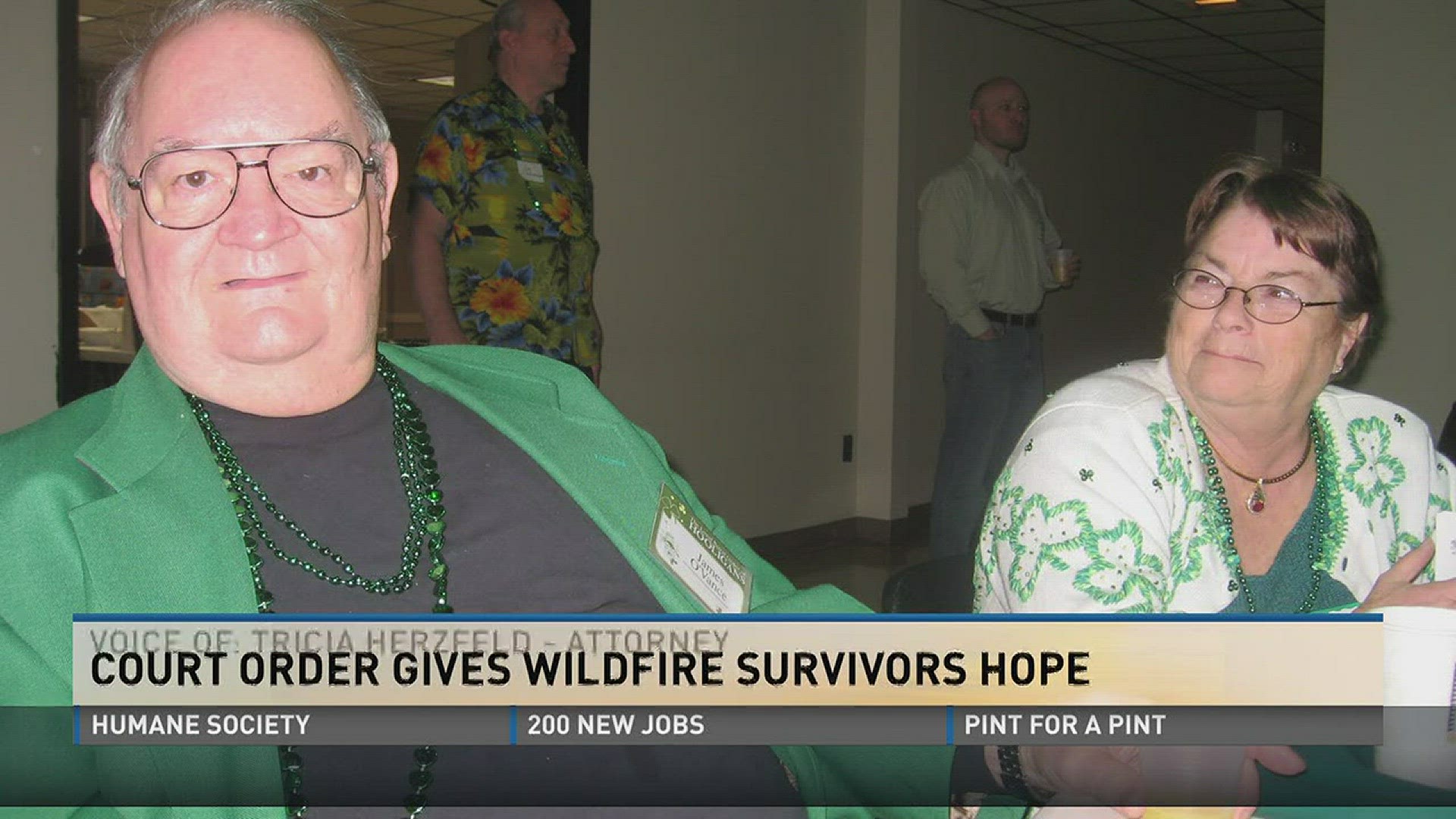The fate of hundreds of people seeking money from the federal government over the 2016 Gatlinburg wildfire disaster now rests in the hands of three appellate court judges in Cincinnati.
Lawyers for people such as Michael Reed, Jackie Barnes and Jim Vance as well as the government argued Wednesday morning over whether a federal judge in Greeneville was right to dismiss their years-old lawsuits last year.
Senior U.S. District Judge Ronnie Greer ruled in February that plaintiffs in a half-dozen or so lawsuits against the United States had failed to fully state the basis of their claims on a routine piece of paper -- what's called an SF-95 -- as required under federal law.
They didn't come out and say, as they alleged in lawsuits, that National Park Service employees had inadequately warned the public at large about a huge fire in Great Smoky Mountains National Park in November 2016 that was bearing down on Gatlinburg and other parts of Sevier County, the judge found.
His decision dealt a heavy blow to people who lost both property and family, such as Reed, whose wife and young daughters perished when the fire consumed their neighborhood.
In all, 14 people died in the fire or while fleeing it. It caused more than $1 billion in damage. It was one of the worst disasters in the state's history.
The plaintiffs hope to revive their lawsuits through the Sixth Circuit, U.S. Court of Appeals.
On Wednesday morning, each side had about 15 minutes to state their case.
Judges Eric L. Clay, Helene White and Amul Thapar heard the case. Clay and White asked an occasional question, but Thapar jumped in often, challenging each side to defend their positions.
Ben Glassman, representing the victims, said they complied with the Federal Tort Claims Act and properly submitted their SF-95 claim of fault against the Department of the Interior, which is over the National Park Service.
As their basis of claim, they stated on the form: "The U.S. government through its employees failed to follow mandatory regulations to monitor and extinguish a fire in the Great Smoky Mountains National Park, thereby allowing it to spread beyond the park boundaries onto claimants' private property, destroying their property."
Greer found that was inconsistent with their later claims that employees failed to warn the public about what was coming.
Glassman, however, argued the victims had a small threshold to cross, and they crossed it. Responding to Thapar, Glassman said legally all they really needed to do to assert their claim was to say the government was negligent.
If they'd just said, "There was a fire, I got hurt and there was negligence, or even just there were mistakes," that would have been sufficient under federal requirements, he told Thapar.
Sandberg, however, said Greer had been right to toss the cases because they simply hadn't included the failure to warn aspect of the Park Service's conduct. He noted that insurance companies who are also suing the government took the time to amend their SF-95 claim forms to add the allegation of inadequate notice by the NPS.
The government also said it had in fact from early on put out press releases to the public acknowledging the start of the blaze up on the remote Chimney Tops lookout in the Smokies.
Thapar mused whether it wasn't possible to be punished for being both too specific and not specific enough in submitting such a claim form.
The fire started the day before Thanksgiving 2016 and continued to grow until it became a conflagration that surrounded downtown Gatlinburg the night of Nov. 28, 2016.
"Obviously, what happened here is a terrible tragedy and the government regrets all the harm that befell everyone, and we want to do better, have better policies in the future. But we don't think it's appropriate for a judge to be Monday morning quarterbacking all the decisions that went into this. This was a completely unprecedented event," Sandberg told the judges.
Glassman said the federal government had done a thorough investigation after the fire to understand what happened. It knew itself that it needed to do better in the future when it came to communicating potential problems with the spread of a fire.
"There's no point if they've done the investigation and they know all of the facts to punish a plaintiff for using the wrong specific words," Glassman said.
Clay, White and Thapar likely will take several months to file their decision.




